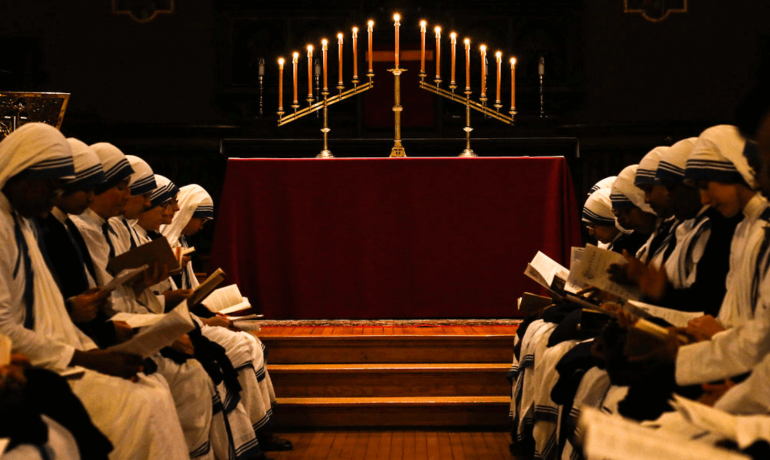Indian Nun’s alleged “forced religious conversion” case on hold, not over

Last week, Christian media organizations noted with satisfaction that in the Indian state of Gujarat, a local court dropped all legal proceedings against the Missionaries of Charity in Vadodara in a high profile 'forced religious conversion case.’
They also reported that the case " has come a cropper with the prosecution admitting there was no serious basis to proceed against them."
However, reports in the secular media say the investigation in the alleged forced conversion case against Missionaries of Charity (MC) has been “put on hold” until the Supreme Court passes a verdict in the appeal filed by the Gujarat government.
In its appeal before the Supreme Court, the Gujarat government had challenged the Gujarat High Court order of August 2021 that had stayed the operation of several sections of the Gujarat Freedom of Religion Act, 2003, under which the FIR (first information report) against the MC was registered in December 2021.
The Gujarat HC had stayed the operation of Section 3, 4, 4A to 4C, 5, 6 and 6A of the Gujarat Freedom of Religion Act, 2003.
In an earlier hearing on February 22, the court had directed the defence counsel to ensure that one of the “victims” mentioned in the December 12, 2021 FIR — a Punjabi woman who allegedly was forced to convert for an interfaith marriage– should be brought before the investigating officers to record her statement.
Assistant Commissioner of Police, Crime, DS Chauhan told The Indian Express, “She maintained her stand from the affidavit submitted before the court that she had not converted for the marriage and continued to follow her original faith… So, the question of forced conversion does not arise… We have told the court that we will continue the investigation once there is clarity on the operation of the Sections of the Gujarat Freedom of Religion Act, 2003, from the Supreme Court. At this moment, we have put the investigation on hold in the case… We have also submitted an undertaking to the court that we will not arrest the accused without notice until the Supreme Court hearing is completed.”
Following the declaration by the Vadodara police, the MC withdrew the anticipatory bail application on a surety that the Vadodara police would serve them a minimum of three-day notice before moving to make any arrest in the future.
Bishop Stanislaus Fernandes, apostolic administrator of the local diocese of Baroda, while commenting on the case said, “At the moment, the prosecution said that it was not proceeding with the case because they did not have the full details,” the bishop explained. “This has given some relief, but we may go to the High Court to quash the case.”
“The police action was totally illegal as it was based on fabricated charges to target the nuns and other Christian groups who have been rendering yeoman service to the poor and the needy in the state,” says Jesuit social activist Father Prakash.
The story began on December 9 last year, when the complainant, Mayank Trivedi, a district social defence officer who visited the orphanage with the president of the district child welfare committee, inspected the Nirmala Shishu Bhavan, a shelter run by the Sisters of Mother Teresa housing 48 girls, 22 of whom are physically or mentally disabled.
On December 12, the officers had made a case for 'forcible conversion' alleging that the girls were made to wear a cross around their necks and read a Bible kept in the storeroom.
The complaint had alleged that the organisation had forced a Hindu girl to marry into a Christian family, forced a Punjabi girl to convert into Christianity, and in another case, had served Hindus non-vegetarian food.
The MC congregation has been targeted by various hardline Hindu religious organisations and officials with allegations of religious conversions and illegal adoptions being made against its nuns.
None of the charges have been proved in a court of law so far, notes UCA news.
Radio Veritas Asia (RVA), a media platform of the Catholic Church, aims to share Christ. RVA started in 1969 as a continental Catholic radio station to serve Asian countries in their respective local language, thus earning the tag “the Voice of Asian Christianity.” Responding to the emerging context, RVA embraced media platforms to connect with the global Asian audience via its 21 language websites and various social media platforms.














